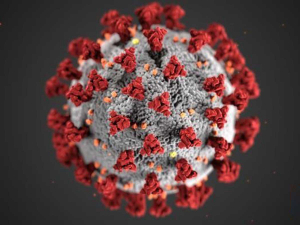Come and chat to the DairyNZ team
DairyNZ's team is looking forward to catching up with Southland and Otago dairy farmers at the Southern Field Days in Waimumu near Gore next month.
 Farmers and those in the agri-sector need to have good plans in place for dealing with the ever increasing likelihood of a major community outbreak of Omicron.
Farmers and those in the agri-sector need to have good plans in place for dealing with the ever increasing likelihood of a major community outbreak of Omicron.
OPINION: Benjamin Disraeli once said, "Plan for the worst and hope for the best".
While the 19th century former British Prime Minister could never have known about Covid, his words from the 1800s are as relevant today as they were back in the day.
Farmers and those in the agri-sector need to have good plans in place for dealing with the ever increasing likelihood of a major community outbreak of Omicron.
Already, a pan-primary sector group - which includes Beef+Lamb NZ (BLNZ), DairyNZ, MPI, the deer and pork industries and Federated Farmers - has been preparing advice for farmers to deal with this contingency.
All of these organisations have advice on their respective websites aimed at making it easy for those in the primary sector to plan for such an outbreak.
There are also copies of this information in vet clinics and rural supply stores.
"It's all about how to keep you and your farm safe from Covid and, if by chance, you or someone on your farm tests positive and has to go to hospital or into isolation," says BLNZ's Will Halliday.
Have a written and readily available plan in place to get through this period before something happens. It is also important that farmers have an arrangement with someone - or a number of people - who might be able to help, as well as having a check list and detailed plan of what to do on the farm to keep it running.
Meanwhile, the country's major meat processors say they are well down the road in planning how to mitigate the outbreak's impact.
The meat sector is already seriously short staffed; any outbreak of Omicron - and any resulting staff absenteeism - would have a major impact on its ability to process animals, fill all important export orders and on its revenue. The dairy processing and manufacturing industry would face similar challenges.
The meat and dairy processing sectors network of processing facilities does provide the option to move animals and milk between plants if Omicron moves around the country.
Previous Covid outbreaks and lockdowns have proven just how vital the agri-sector is to NZ's economy. Those in the sector need to take Disraeli's words to heart and - if they have not already - get planning.
While the North Island is inundated with rain, Southland is facing receding water levels as warm weather and lack of rainfall continues.
Entries have opened for the 2026 Fieldays Innovation Awards.
Organisers are expecting another full field of 40 of the country’s top shearers for the popular Speed Shearing event at this year’s Southern Field Days at Waimumu.
The Southern Field Days Innovation Awards have a great record in picking winners and the winner of the 2024 event will be putting up a display to support the event at this year’s show.
A buoyant farm economy should make for a successful 2026 Southern Field Days, says chairman Steve Henderson.
Animal welfare is of paramount importance to New Zealand's dairy industry, with consumers increasingly interested in how food is produced, not just the quality of the final product.